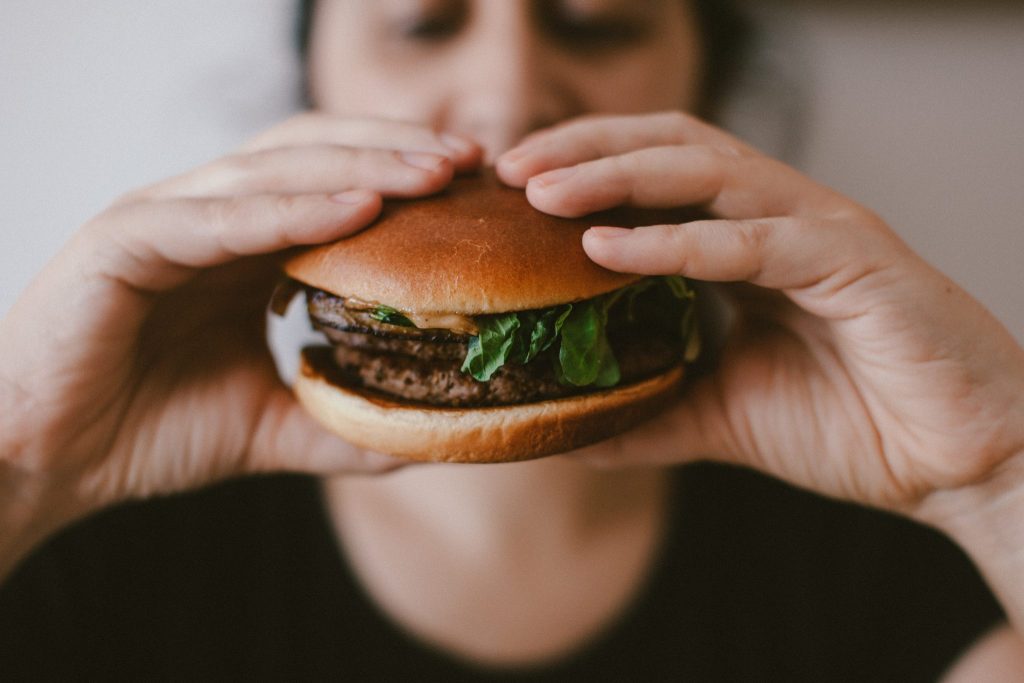
Excessive food consumption can lead to both physical and psychological consequences. Fortunately, various strategies can help you avoid this unhealthy habit.
You probably ate more than you should at some point. Maybe because it was your favorite food, or because you were really hungry, or maybe for some other reason. While doing so from time to time is not a big disaster, the health effects of overeating are numerous.
In this sense, when the guilt over food becomes constant, you can have various health problems. Not only will you gain weight, but you may also experience mood swings.
So how can this be avoided? And is overeating a problem?
In general, the consequences of overeating, which sometimes occur, are minimal and temporary. However, if the desire to eat becomes permanent and gets out of control, it is likely to lead to several physical and mental consequences.
People who have a disproportionate appetite not only gain weight. They also begin to develop a negative habit that may prevent them from living in daily life.
Possible reasons
There are many factors associated with the need to eat more than you should. This does not only happen when you eat your favorite food. In fact, overeating usually has nothing to do with the food itself. This is most likely due to constant stress or factors such as a diet that is too restrictive.
Consequences of overeating
First of all, overeating can have physical consequences, such as being overweight or obese, although this is not always the case. In many cases, the consequences can be psychological. This is true for overweight people as well as for others.
According to information published in the journal “The Primary Companion for CNS”, the psychological consequences of overeating can be as follows:
- loss of control over food;
- social isolation;
- increased anxiety;
- state of anxiety or suffering;
- loss of satisfaction from participating in previously enjoyable activities;
- changes in memory and concentration;
- obsession with food and nutrition;
- sleep changes.
Which will help avoid overeating
To avoid overeating, there are strategies you can apply daily. However, you should understand that these are just tips and they should not replace professional treatment. If you are overly concerned about food, it is best to consult a doctor or specialist.
Identify your emotions
To determine the emotions you are experiencing, you need to solve your problems. One way is to keep a diary and write down how you feel. In addition to being a distraction from eating, it can also help you discover something interesting.
Don’t worry about food
When you notice that you are overeating, it is not the time to punish yourself. If you start avoiding the foods you like, you probably won’t be able to stand it for long. Rather, you will have a strong desire to eat everything you have removed from your diet.
This can be accompanied by feelings of frustration when you can’t reach your goal. As a result, you fall into a vicious circle from which it is difficult to get out. Therefore, it is always better to follow a healthy diet without going to extremes.
Do your favorite exercises
Several studies indicate that some people train to compensate for overeating. In other words, exercise is a punishment for eating too much, and the only way to avoid gaining weight.
It is important to remember that exercise is good, but it should not be just about losing weight. You need to exercise because it is good for your health, but be careful not to exceed your physical capabilities. If you are not used to it, then start gradually – from 20 to 30 minutes a day.
Consult a professional
Although not everyone goes to the doctor when it comes to overeating, there are situations when it needs to be done. This is especially true when overeating is due to emotional causes.
According to a study in the medical journal Current Psychiatry Reports, psychological therapy is useful for recognizing and correcting behaviors that lead to overeating. At the same time, it improves a person’s general well-being.
Consequences of overeating: what to remember
Although overeating over a long period of time can lead to weight gain, it can also have other consequences. Therefore, it is important to determine as soon as possible why this is happening and to identify the related factors. This way, you can choose the right treatment so that this problem does not affect your quality of life.
Picture Credit: Unsplash
